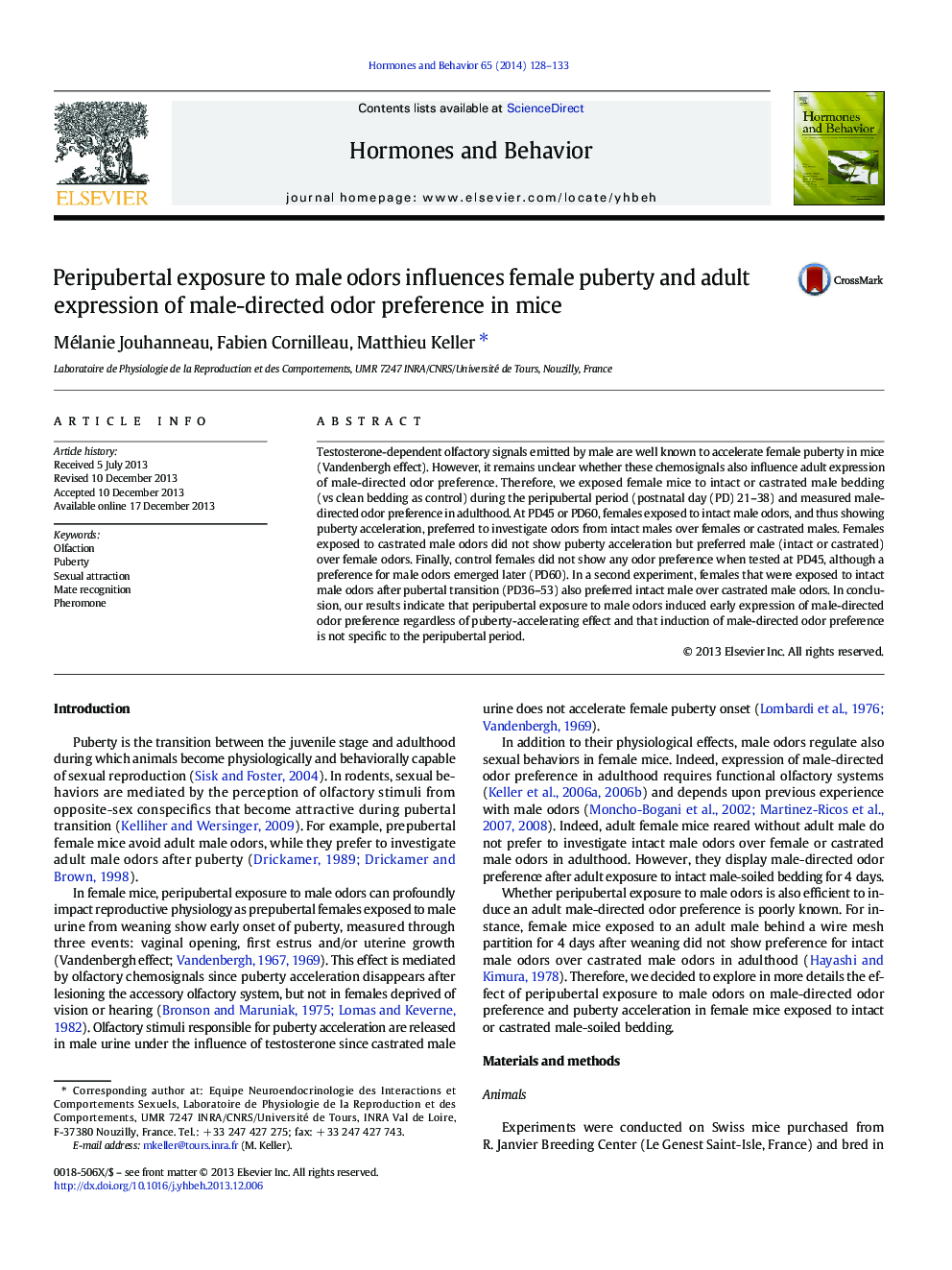| Article ID | Journal | Published Year | Pages | File Type |
|---|---|---|---|---|
| 322716 | Hormones and Behavior | 2014 | 6 Pages |
•Male odors accelerate puberty and opposite-sex odor preference in female mice.•Physiological and behavioral effects induced by male odors are independent.•Peripubertal period is not specific to mediate effect of male odors on preference.
Testosterone-dependent olfactory signals emitted by male are well known to accelerate female puberty in mice (Vandenbergh effect). However, it remains unclear whether these chemosignals also influence adult expression of male-directed odor preference. Therefore, we exposed female mice to intact or castrated male bedding (vs clean bedding as control) during the peripubertal period (postnatal day (PD) 21–38) and measured male-directed odor preference in adulthood. At PD45 or PD60, females exposed to intact male odors, and thus showing puberty acceleration, preferred to investigate odors from intact males over females or castrated males. Females exposed to castrated male odors did not show puberty acceleration but preferred male (intact or castrated) over female odors. Finally, control females did not show any odor preference when tested at PD45, although a preference for male odors emerged later (PD60). In a second experiment, females that were exposed to intact male odors after pubertal transition (PD36–53) also preferred intact male over castrated male odors. In conclusion, our results indicate that peripubertal exposure to male odors induced early expression of male-directed odor preference regardless of puberty-accelerating effect and that induction of male-directed odor preference is not specific to the peripubertal period.
